IAA #CommunityStars is a monthly interactive session initially aimed at helping independent retailers tackle new challenges bought on by coronavirus. As lockdown restrictions continue to ease and retailers are faced with new challenges, from changing customer habits to ensuring their staff remain safe, this session offers insight and tools they can apply to tackle these hurdles, develop their business, and help prepare for a post-pandemic
This month’s session, led by Samantha Gunston, head of events at Newtrade Media, saw Vicky Onions, of Vicky’s Convenience Store in Bromsgrove and Sue Nithyanandan, from Costcutter Epsom in Surrey discussing how they are upskilling their teams and the things they’ve achieved by delegating responsibility.
Vicky has run her 500sq ft store for the past 16 years and has worked with several apprentices, training them up and helping them to get their qualifications, and currently employs five staff members. “We have two full-time, one apprentice and two 16-year-olds who help us to close down the shop in the evening.”
Sue, on the other hand, runs a 2,600sq ft store and employs 14 members of staff. “I’ve got seven full-time and the rest are part-time, but five of them have been with me since day one.”
The two retailers have very low staff turnover due to ensuring they remain motivated, as well as offering several different training opportunities and having their expectations clearly laid out from the start. What’s more, Vicky and Sue were recognised as an IAA top 100 retailer in this year’s programme.
Here are eight ways Vicky and Sue are building a strong team that ensures staff turnover is low, and increases repeat custom and sales.
IAA 2020/21 Top 100 Independent Retailers in UK & Ireland
Protecting staff
“When the news of the first lockdown was announced, we had an unexpected influx of customers, and my first thought was how do I protect my staff,” Sue says.
In the first week of lockdown in March 2020, Sue implemented a queueing system, limited the number of customers in store at one time, reduced trading hours and installed hand sanitiser stations and Perspex screens.
“We then spoke to the team about how comfortable they were working and if they wanted to be furloughed. Luckily, only one individual did this, but then keeping them safe and reducing exposure where possible was key,” Sue added.
Like most retailers, Vicky was travelling to the cash & carry daily for stock, but quickly realised her staff were struggling in store. “With the increase of customers, some were new and didn’t know the store well and we had some rude customers. It was overwhelming for such a young team.”
Register for 2023-24
To maintain morale and make sure her team didn’t burn out, Vicky ensured her team took their rest breaks and employed more staff. “I employed a new team member straight away, which helped when someone had to isolate.
“We also reduced trading hours to handle any reductions in staff and then when they returned and the high footfall remained, we increased them again.”
Vicky also rewarded staff through gifts and cash incentives. “I bought them rainbow badges and chocolate hearts with encouraging messages, such as ‘well done’ or ‘keep it up’, which helped to boost morale.”
Retaining customers in a post-pandemic world
Knowing the importance of retaining customers from the pandemic as restrictions ease, Sue has expanded her offering. “We introduced the Cook frozen range, invested more in vaping and expanded our pet food range to include more premium options.”
Vicky also increased her range to take advantage of store closures. “I added in more greeting cards and we went from a 1m stand to a 2.5m bay, which is performing well. We also work with a balloon supplier who creates helium balloon displays that improves the look of the store, increases customer satisfaction and acts as free advertising for the supplier.
“We also introduced a range of takeaway curries from a business in a nearby town. Initially, we only sold 15 a week, but this has since increased to 150.”
But both retailers agree, though, that the most important thing to keeping new customers is staying up to date with the latest trends. “I use trade press, like RN and Retail Express, to find out what’s trending and what shoppers are finding interesting. You have to keep that momentum going by bringing in these extra things,” says Sue.
Maximising wage increases
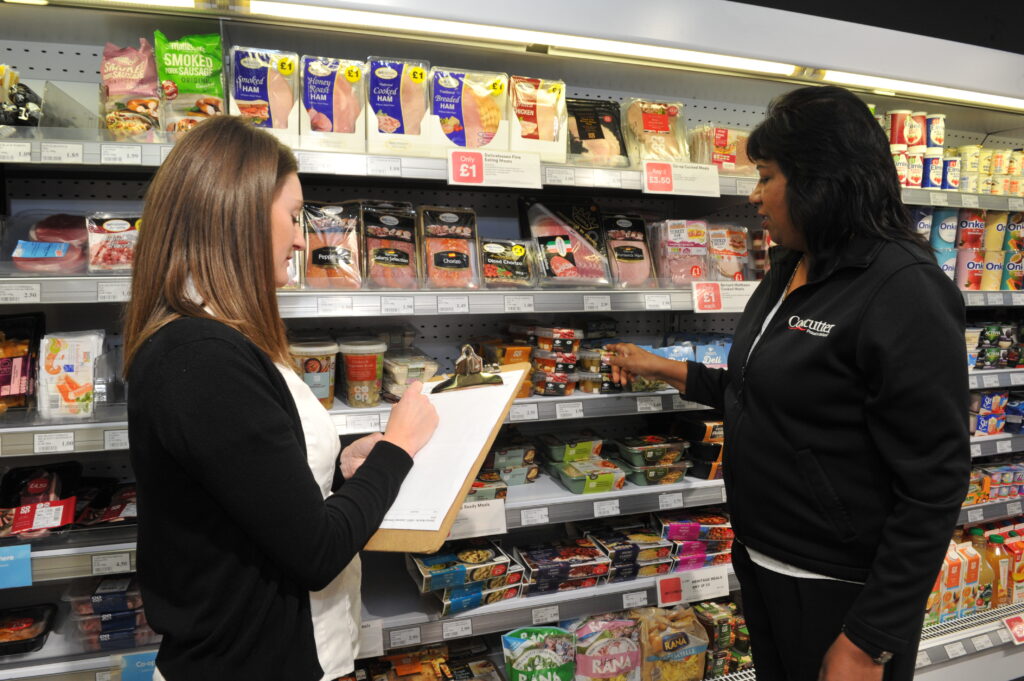
“Any wage increase is difficult, but understandable. You’ve got to look at your staff, see what skills they’re offering and make sure they maintain standards,” Vicky says.
“Customers want to see you every day, so you have to almost create someone similar who can run the shop while you’re away.”
Vicky trains her staff regularly to take on more responsibility using multiple resources from online companies and the NFRN, which accounts for any wage increases. “Staff have a daily to-do list that’s carried out at every shift change and helps to maintain customer expectations.”
The next step for Vicky is implementing a system so staff are aware when deliveries or reps are due to arrive so that there are no hidden surprises. “My staff don’t always know when we’re expecting someone, so I’m trying to get a two-week rota, which will show when they’re due to come in and an approximate time.”
Sue, however, is looking to reduce waste where possible. “A big part of the business is our fresh and bakery range, which is typically high in waste. The team that looks after the area are constantly reviewing what is being recorded and we’ll adjust our ordering accordingly – same with our bakery.
“If we’re baking 30 croissants, but only selling 10 then there’s something wrong there. We’re trying to become more efficient.”
To further reduce waste, Sue signed up to the Too Good to Go app. “If we have a box leftover then we offer it to staff as a thank you and a job well done.”
Improving efficiency
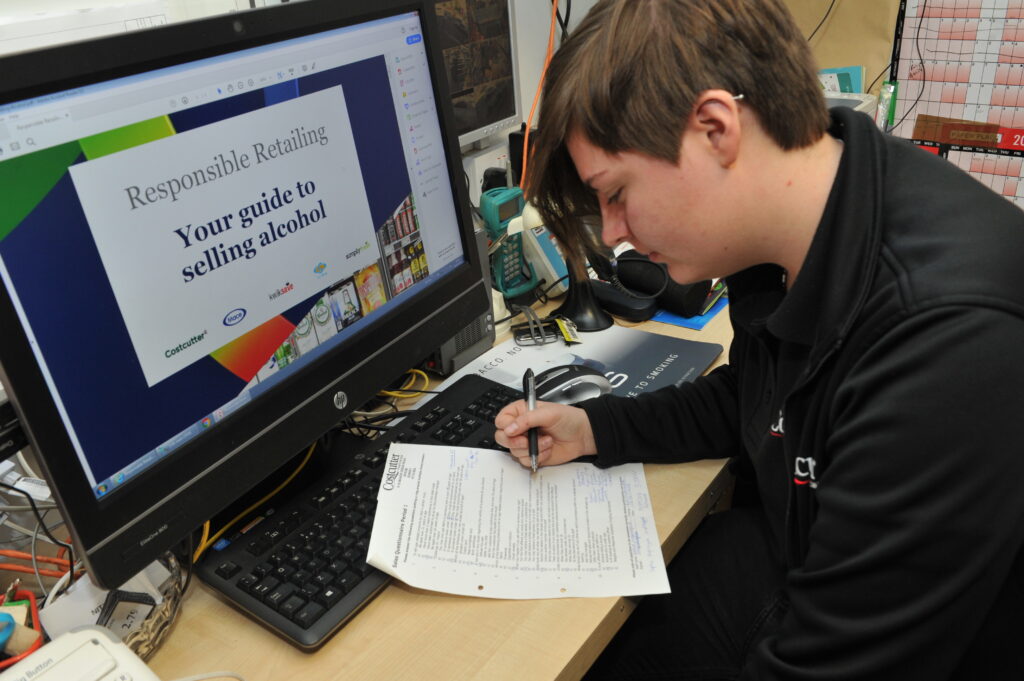
To improve the store’s efficiency, it’s important to invest in your staff and their training needs. Sue uses a symbol group online training programme to do this. The course can be completed at home and in-store and includes health and safety and first aid.
“Investing in training not only helps us, but it’s something my team can add on to their CV, meaning we all benefit in some way. I try to give my staff as much knowledge and resources to help them develop.
“Start with the basics. Most programmes are self-tested, but it gives them the opportunity to get some qualifications behind them,” Sue says.
Hiring an apprentice can also help to increase efficiency, as well as increase staff loyalty. “We use Babcock. Having an apprentice is great for a business because the hourly wage you pay is lower and you have to offer them 30 hours. Plus, they get on the job training,” Vicky explains.
“One of my team members started as an apprentice three years ago and recently completed his level three qualification. When he started, he was shy, and it’s been so satisfying seeing him develop. If you add value to your team, then they’ll always give back to you.”
But Sue warns it can be difficult in some areas to hire an apprentice. “I’ve been trying for six months to get an apprentice in my store because there’s a lot we can offer. For me, it’s looking at being able to help someone, but it’s been difficult.”
Learning to let go
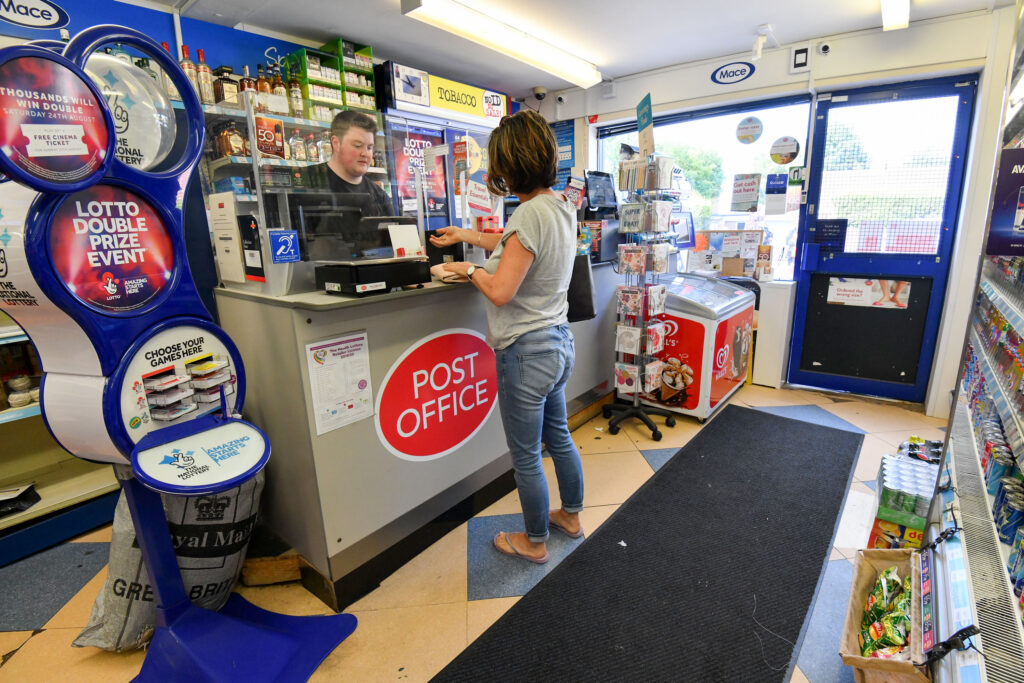
“Ask yourself, are you spending time creating and developing your business? If the answer is no, then delegate to your staff. Start training them and get them to take on more responsibility so you can focus your efforts elsewhere,” says Vicky.
Vicky follows a ‘do it, delegate or ditch it’ mantra and has an everyday task list for staff that’s used for shift changeovers and in the evening. This allows her to focus on improving profitability.
Accountability is the key for succeeding in any increases in responsibility but can be difficult to achieve. For Vicky, open communication is vital. “It’s trial and error. People make mistakes, but if you’re open and honest with them and they recognise their mistake, then you can work together to correct them.”
Vicky also holds regular 1-2-1’s about her team’s progression and asks them about their likes and dislikes. This helps her determine their strengths, weaknesses, and passions. “One of our staff members loves doing the shelf edge labels, whereas I hate doing them. You need to find out where they’re stronger but challenge them as well.”
Sue does similar and emphasises the importance of open communication. “It’s very hard for an owner to let go, but your team will flourish if you do. We chat with our managers daily about how things are going, but anyone can approach us if they are having issues.
“Trust is a two-way street, and you have to trust your team. If you do, they won’t let you down.”
Ensuring staff feel valued
Cash incentives, rewards and gifts are simple ways to thank your team after a hard day’s work – and shows you value their presence. “If suppliers give us a bonus or voucher, I’ll give it to my team,” says Sue. “Anything extra I receive, I’ll give to the staff.”
In April, Sue paid her team an additional week’s pay as a bonus to thank them for the past year. “We saw an increase in sales, which wouldn’t have happened without them, so we try and help them where we can.”
WhatsApp is also a powerful tool in communicating with your team. “We’ve got a ‘Shop talk’ WhatsApp group and I send daily messages that help to increase their confidence. Most of the messages will cover customer service, like smiling and talking to customers,” Vicky says.
What’s more, Vicky bought her team cupcakes when it was announced the store was in the IAA’s top 100. “I do this to keep the momentum and excitement about coming to work.”
Looking after their mental health
Mental Health Awareness week took place 10-17 May and for Vicky, looking after her own and her team’s mental health is everything.
“We were grateful to work during the pandemic because we could go out, and a lot of people didn’t have that option,” she says. “From a mental health perspective, it did a lot of good.
“Talk to your team and have fun with them. It will pay off in the long run.”
Sue regularly checks in with her team’s WhatsApp group and says keeping them up to date about the business ensures they don’t feel left out. “That communication helps to keep my staff happy. We use the group to alert them about any shoplifters, challenges and positives that have come from the day.
“I also encourage them to take regular holidays. Even though we can’t go anywhere, they appreciate having the day off to reset.”
How the IAA has helped
“The IAA encourages me to always look at my customer service,” says Vicky. “We realised we were getting new customers in because of the pandemic, so we used our learnings from the IAA to give them the best service we could.”
For Sue, the IAA has caused her to look inwards and evaluate the importance of the small things. “A lot of the things we used to take for granted, like talking to staff, we now do daily. Staff are key and if they’re not happy, then you don’t have a business.”
Sue participated in the IAA’s Academy in Action programme a few years ago for staff development. She says of the experience: “It was really invaluable. Since then, the IAA has supported me to write job descriptions, set up cleaning schedules and much more.
“The IAA helped us to organise the day and give my staff that trust, and they all feel very important in their roles.”
Independent Achievers Academy 2020/21 finalists revealed!
Our top tips
Vicky and Sue have rounded up their top lessons they have learnt by participating in the IAA.
- Walk the store, taking in each area and understand where your strengths and weaknesses are. Teach your staff to do the same.
- Challenge yourself by benchmarking. The IAA is a learning curve and a support system. “As a retailer, it can be a very lonely place sometimes and having the support of the IAA is only a good thing,” says Vicky.
- The IAA encourages you to look inwards on your business, as well as help you make improvements you might not have thought of.
- With benchmarking, retailers can learn new ways to do certain things, so shouldn’t be feared and the programme is a good process.
- Sue has learnt to delegate and write job descriptions, as well as manage expectations and create a happier working environment
IAA: Register your interest in taking part
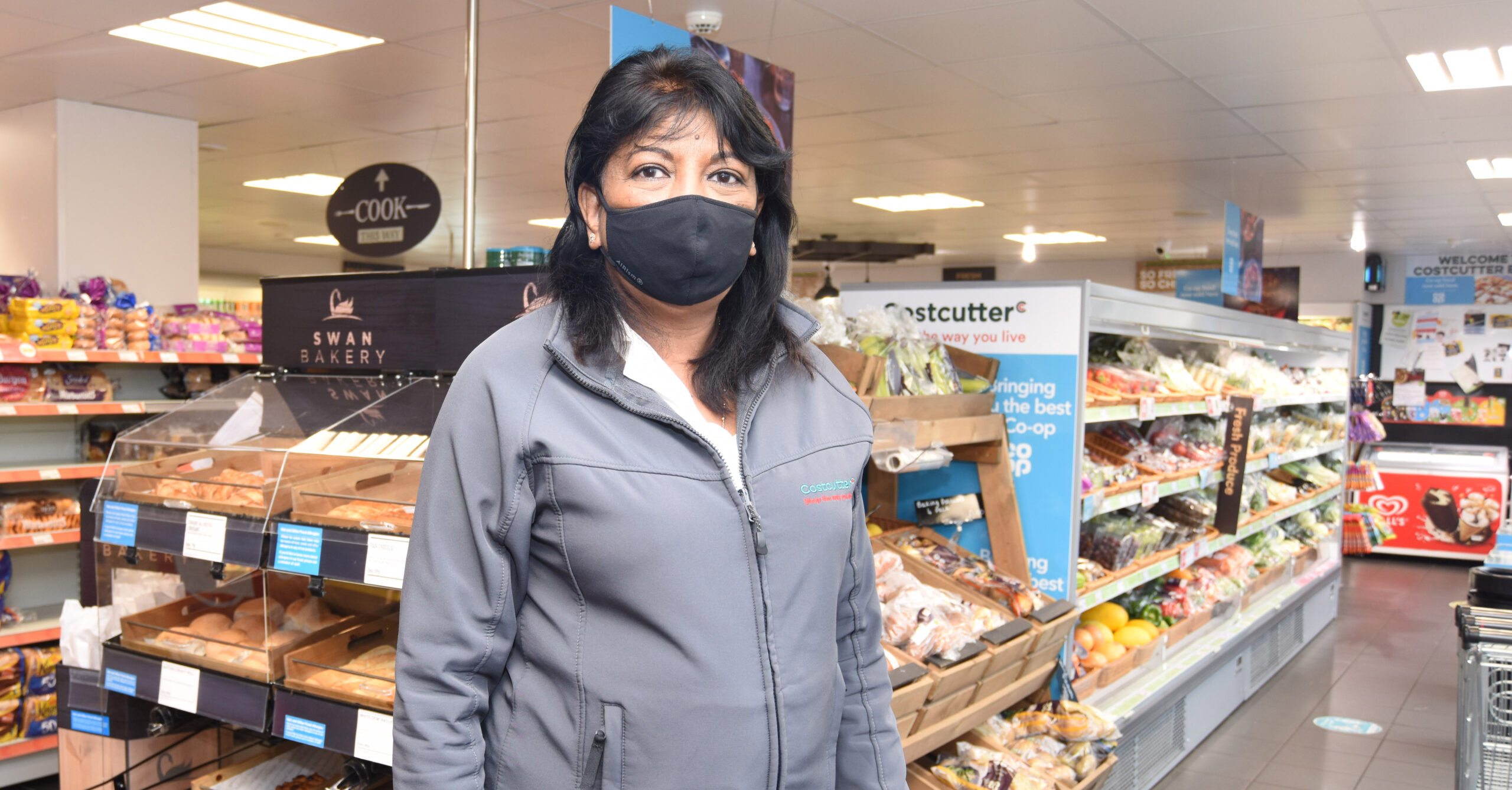
“All businessess should take part in the IAA, there’s always something new to learn and innovations to share”




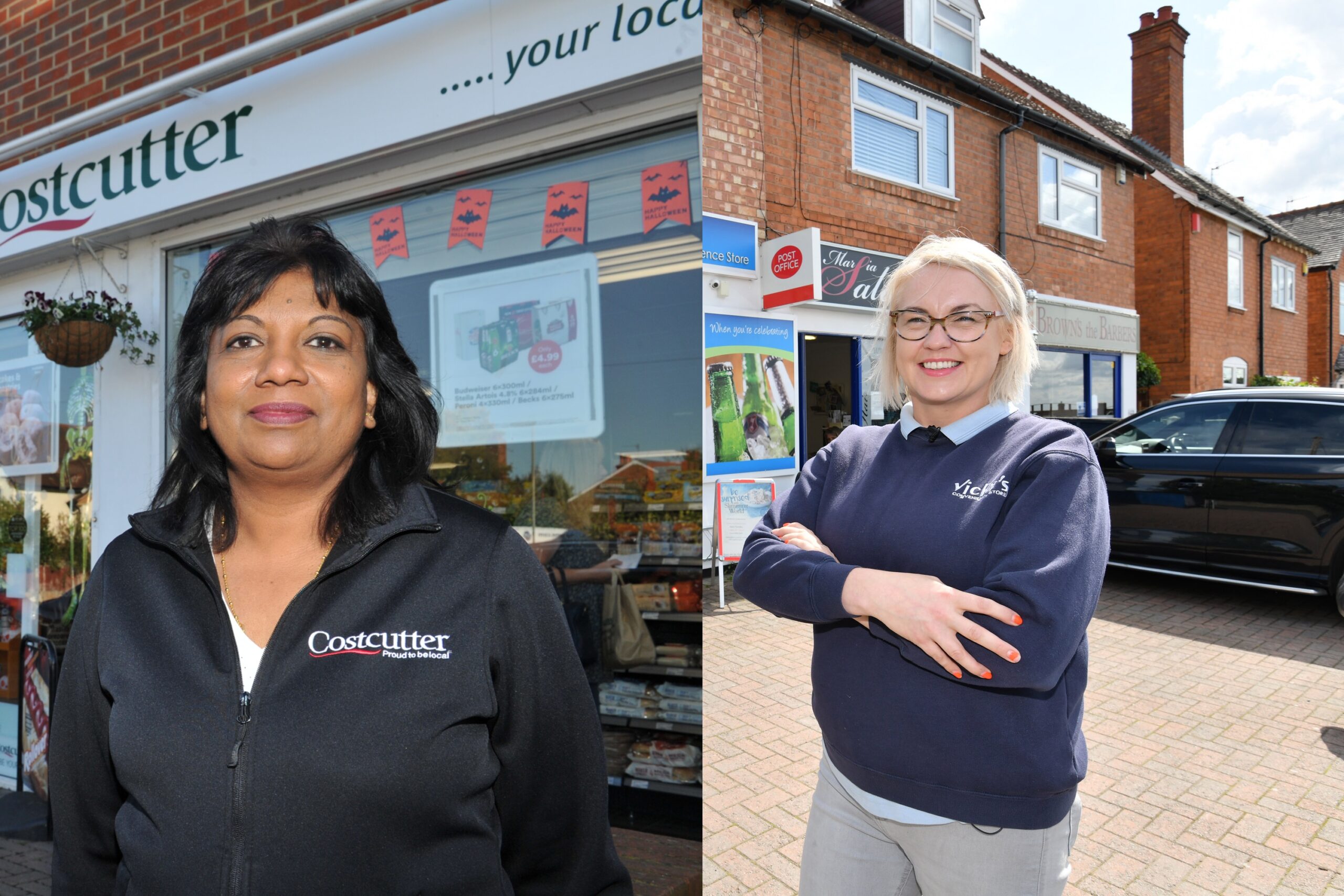

Comments
This article doesn't have any comments yet, be the first!